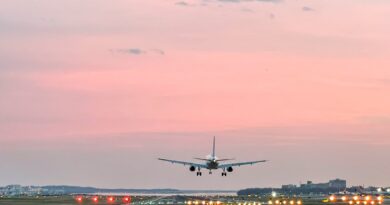Delta shifts regional focus back to Detroit as it trims 10% of NYC flights – The Points Guy
Delta Air Lines is making some changes to its New York City network.
Over the weekend, the carrier, which operates a hub at both LaGuardia Airport (LGA) and John F. Kennedy International Airport (JFK), filed plans to drop service on a new route that it launched just earlier this year: LGA to Greater Binghamton Airport (BGM).
Instead of the LGA service, Delta will once again fly to Binghamton from its Detroit hub as of Jan. 8, 2024.
Want more airline-specific news? Sign up for TPG’s free biweekly Aviation newsletter.
While Binghamton is the only route cut from this week’s schedule update, Delta is also trimming about 10% of its flights from its two New York hubs from January through March, as first seen in Cirium schedules and later confirmed by an airline spokesperson.
Though no single route is getting slashed completely, the airline is shaving off frequencies in many markets, such as Bangor, Maine; Burlington, Vermont; Norfolk, Virginia; and Syracuse, New York.
The move comes as the Federal Aviation Administration (FAA) recently extended the temporary slot waiver for flights at New York’s two busiest airports.
In order to operate at the capacity-constrained LaGuardia and JFK Airports, airlines need to hold takeoff and landing permissions from the FAA. These permissions, known as slots, are usually use-it-or-lose-it, meaning that if Delta weren’t able to fill its entire slot schedule, then it would risk losing a valuable slot to one of its competitors.
Go long: Delta adds 4 new — and longest — LaGuardia routes

Daily Newsletter
Reward your inbox with the TPG Daily newsletter
Join over 700,000 readers for breaking news, in-depth guides and exclusive deals from TPG’s experts
During the pandemic, airlines received slot waivers that allowed them to cut flights without the risk of losing these valuable assets. While those temporary pandemic-related waivers are now history, the FAA recently extended another slot waiver through October 2024, primarily due to air traffic controller shortages in the Northeast.
This waiver allows airlines to drop about 10% of their flights at LaGuardia and JFK, allowing Delta to adjust its New York schedule without worrying about losing assets with immense long-term value.
While Delta could theoretically keep flying a full schedule, trimming frequencies in many markets seems to make sense. Business travel, which is typically one of the main sources of demand between January and March, isn’t back to pre-pandemic levels, so instead of flying empty planes or dropping prices to spur ticket sales, Delta can instead trim capacity.
While that might be a good move for Delta’s bottom line, it could theoretically lead to higher fares if capacity is restricted by too much.
Of course, we’ll have to wait to see how things play out in the winter, but extending the slot waiver avoids a common strategy that’s used by many airlines in capacity-constrained airports: “slot squatting.”
Aviation insiders typically consider slot squatting as filling the schedule with lower-cost regional operations — often flying with few passengers — just so an airline isn’t at risk of having to give up a valuable slot to a competitor. And Delta, which markets itself as the larger carrier in New York, seems to have done some slot squatting over the past few months.
Earlier this year, it began flights between LGA and Binghamton and State College, Pennsylvania, as well as from JFK to Ithaca, New York.
These regional routes used to be served from Delta’s hub in Detroit until the airline shifted them to New York. Despite announcing these flights last October, just one of them is left in operation: JFK to Ithaca.
Service from LGA to State College lasted for about six months, and the flight to Binghamton will move back to Detroit later this year.
Though Delta may never confirm that these flights were intended to “slot squat,” now that the waivers are back in place, it’s pretty clear to see where Delta’s network priorities lie.
Related reading:




